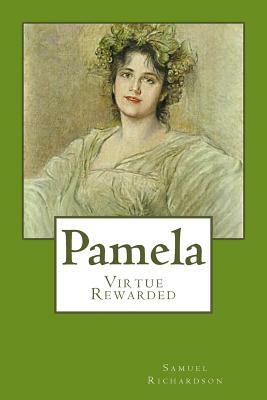Scan barcode
1001 Books You Must Read Before You Die - hosted by cdhotwing
Pamela – Samuel Richardson
Lifespan | b. 1689 (England), d. 1761 First Published | 1742 First Published by | C. Rivington (London) Full Title | Pamela: or, Virtue Rewarded Pamela sparked an unprecedented degree of public debate.
The novel consists of letters written by fifteen-year-old Pamela Andrews, the beautiful servant of wealthy Mr. B—. Pamela resists Mr. B—’s increasingly forceful efforts to seduce her, until, chastened by her virtue, he marries her. Pamela does not end with the heroine’s marriage, however, but follows her struggle to establish herself in her new role, and to gain acceptance from Mr. B.—’s peers. Pamela is a novel about the abuse of power and the correct way to resist. For all Pamela’s insistence that “virtue” is her only defense, she is really empowered by language—something that makes her resistance to her social superior a political as well as a moral act. Despite plotting a provincial servant girl as his heroine, Richardson’s critique of the upper classes is limited; Pamela’s “reward,” after all, is to ascend into their ranks. Pamela herself suggests that Mr. B—’s crime is not merely his sexual incontinence, but his failure to fulfill his pastoral role as her “Master.” Pamela was praised by some as a handbook of virtuous behavior, while others denounced it as thinly disguised pornography. A slew of parodies appeared in Pamela’s wake (most notably Fielding’s Shamela), arguing that Pamela manipulates her sexuality for personal gain; that Richardson’s moral intentions for the novel had been corrupted by the titillating subject matter. These ambiguities are what make Pamela so fascinating, for the modern reader no less than Richardson’s contemporaries. RH
All books added
336 pages • first pub 1740 (editions)
ISBN/UID: 9781545479742
Format: Paperback
Language: English
Publisher: Createspace Independent Publishing Platform
Publication date: 19 April 2017
fiction
classics
literary
romance
challenging
slow-paced
fiction
classics
literary
romance
challenging
slow-paced
336 pages • first pub 1740 (editions)
ISBN/UID: 9781545479742
Format: Paperback
Language: English
Publisher: Createspace Independent Publishing Platform
Publication date: 19 April 2017
fiction
classics
literary
romance
challenging
slow-paced
fiction
classics
literary
romance
challenging
slow-paced
More...
